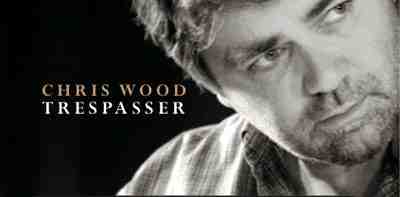CHRIS WOOD- TRESPASSER
July 24th, 2008 adminI came across Chris Wood when hearing him interviewed on Radio 4 about his most recent album Trespasser. Wood has been established on the English folk scene for many years and he is known for his songs of English life and his uncompromising lyrical approach. I’ve been listening to the album now for a few weeks and it is contemporary and thought-provoking. As the title implies, the theme of the album is enclosure, ownership and exclusion.Â
My favourite song is undoubtedly ‘The Cottager’s Reply’ where an elderly Cotswold cottage owner talks to the rich young couple who want to pay him half a million pounds for his home.  It’s a quiet, beautiful but at the same time, angry song.Â
Â
Wood’s music reveals his love for the un-official history of the English speaking people. As quoted on his website–
“The people of England have been unravelling the universe through their songs, stories, poetry, jokes and dances for millennia and it is this vibrant body of work which becomes the freely given treasure trove for the next generation. The simple lesson we have learnt from our ancestors is to tell nothing more or less than our own story and that the gold we are all searching for is in our own backyard.â€â€¨
There is an interesting essay in the sleeve notes to Trespasser about what he sees as the ongoing effects of the enclosure of common land in England to the present day.
You can read a review of the album here.
28th July Update-Â Check out this article written by Chris in today’s The Times, where this quote was taken:
“What I do believe is that, like it or not, the folk song of England is a living repository of our unofficial history and is possibly the single richest cultural resource we have. It is nothing less than the collective “common sense†of our ancestors and it grants us a perspective on how we have become the people we are in a way that no other “document†can.
If that is too much of an imaginative leap, try looking across the ocean. English folk song is at the heart of the music of white America, from where it evolved to tell a large part of that nation’s story. For all that time back home in England it has been ceaselessly churning, growing and evolving.
In a media-dominated culture, where style is placed over substance, it is understandable that people just don’t get it, but as the indigenous population of this country is increasingly called upon to lay its cultural cards on the table most of us agree that “Land of Hope and Glory†and “She loves you, yeah, yeah, yeah,†don’t quite tell the whole story.”


